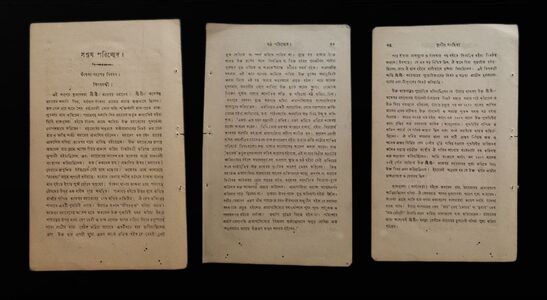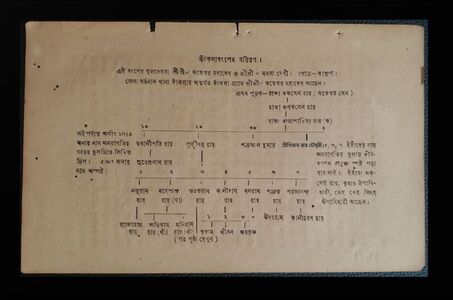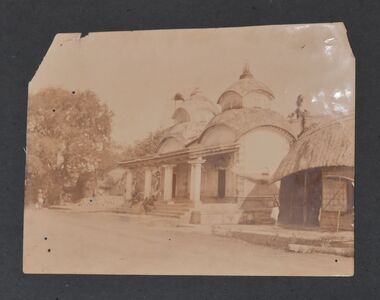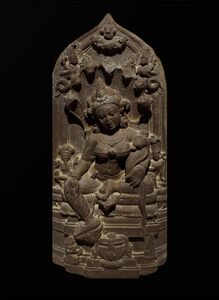
Sri Sri Kankeshwar Mahadev is the ancestrally worshipped deity (কুলদেবতা, कुलदैवत ) of this family. According to the legends, a powerful courtier named Kanka Sen Roy lived in Rajputana. He was instructed by Lord Mahadeva to travel down to the village of Kanksa and Kanka Sen Roy arrived in this village with his family deity.

Gradually the local inhabitants came to know about the Mahadev deity he used to worship. The deity came to be known as 'Kankeshwar'. With Kankeshwar Mahadev's blessings, Kanka Sen Ray managed to get control over several villages in the vicinity and became an overlord of the area. The place from where he ruled also came to be known as 'Kankeswhar' --- which gradually metamorphosed to 'Kanksa'. The village of Kanksa in the district of Bardhaman. The Kankeshwar Mahadev temple is situated here.
There is a pond named 'Jivatkunda' behind this temple, which also enjoys its share of legends. It is said that following the commandment of Lord Mahadeva, Kanka Sen Roy dug this pond and secured it from all sides, keeping only one entrance open. The entrance was heavily guarded. Soldiers injured in battles would come and take a dip in this sacred pond and get healed immediately so that they could go back to the battlefront again. According to the local legends, a Muslim man dressed as a Hindu sanyasi entered the pond premises and threw beef in the water --- an act which took away the magical power of the pond.
Over time they adopted Ma Manasa as their Kuladevata. The word kuladevata is derived from two words: kula, meaning clan, and devata, meaning deity, referring to the ancestral deities that are worshipped by particular clans.
The descendants of Kanka Sen Rai who had arrived from Rajputana, are known as 'Kankesh' or 'Kanksa'. Over time, they have spread elsewhere and use surnames like 'Kumar', 'Roy' or 'Roy Chowdhury'.






